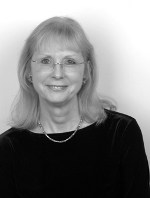 Dues to remain fixed at current levels, votes AGM
Dues to remain fixed at current levels, votes AGM
Geoscientist 19.7 July 2009
Fellowship dues will be held steady, following a resolution at the Annual General Meeting, President’s Day (June 3). In view of the current financial downturn and low inflation, Fellows voted to keep all dues levels where they are for the time being.
A new category, Junior Candidate Fellow, was also approved. Due to increasing demand from younger geoscientists, it had become apparent that the GSL needed to introduce a 'Junior Candidate Fellowship' to its list of categories of membership. This level of membership will be open to all those from 16 years up who are not yet at University and have an interest in Earth sciences. They will enjoy similar entitlements to Candidate Fellows, including Geoscientist magazine, use of the library, and allocated membership of a regional group. In addition, where relevant and appropriate, JCF's will be able to attend meetings at a discounted rates.
A week later, at the June Shell London Lecture (Speaker – Rachel Wood) the Society launched another new membership category – “Friend”. A Friend of the Geological Society will be someone who, while not qualifying for any existing category of membership, supports the work of the Society and wishes to be associated with it. The clear market for this new category has become evident as a result of the amazing success of the Shell London Lecture Series. These are regularly sold out and many are now presented in matinée performances to cope with the demand. Among other privileges, Friends will receive a monthly copy of Geoscientist.
Edmund Nickless told
Geoscientist: “This new category shows the Society is reaching out to a whole new community, which we have been able to do thanks to the vision and generosity of our sponsors, Shell, who have supported our public outreach programme since Bicentenary Year. We look forward to building links with many more interested lay people as we develop this exciting new scheme”.
A similar scheme will also be created for schools, who will be able to affiliate with the Society, in a similar way to the Society’s existing Corporate Affiliates. The full package of educational benefits is yet to be worked out in detail, but it will include – you guessed it – copies of Geoscientist!
TN